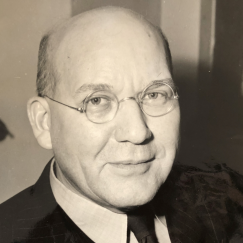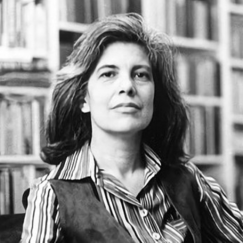The opportunistic teacher who embraces the leisure interests of his pupils in the hope of leading them to higher things is as frequently unsympathetic to the really valuable qualities of popular culture as his colleague who remains resolutely hostile. A true training in discrimination is concerned with pleasure.
Bio/Short Description
In her essay, "Against Interpretation," Susan Sontag argues that merely identifying the symbolic features of literature or art is a form of translation that can limit our ability to appreciate the genuine creativity of artistic works. Sontag's work on photography was important in fertilizing educators' ideas about representation and reality. Her essays on photography explores how the convenience of modern photography has created an overabundance of visual material, since "just about everything has been photographed." This has altered our expectations of what we have the right to view, want to view or should view. "In teaching us a new visual code, photographs alter and enlarge our notion of what is worth looking at and what we have the right to observe" and has changed our "viewing ethics." Photographs have increased our access to knowledge and experiences of history and faraway places, but the images may replace direct experience and limit reality. Photography may desensitize its audience to horrific human experiences, and children are exposed to experiences before they are ready for them. The problem of our reliance on images and especially photographic images is not that "people remember through photographs but that they remember only the photographs ... that the photographic image eclipses other forms of understanding—and remembering. ... To remember is, more and more, not to recall a story but to be able to call up a picture" (Sontag, 2002, p. 94).
HOW THEY INFLUENCED YOU?
Videos
Other Grandparents
 ColinPosted By: Renee HobbsOn:07/13/2025 - 00:50
ColinPosted By: Renee HobbsOn:07/13/2025 - 00:50
 BillPosted By: Renee HobbsOn:06/29/2025 - 20:45
BillPosted By: Renee HobbsOn:06/29/2025 - 20:45
 HowardPosted By: Renee HobbsOn:01/27/2024 - 22:47
HowardPosted By: Renee HobbsOn:01/27/2024 - 22:47
 Gary Posted By: Renee HobbsOn:01/01/2024 - 00:39
Gary Posted By: Renee HobbsOn:01/01/2024 - 00:39
 Clyde Posted By: Renee HobbsOn:04/04/2023 - 18:16
Clyde Posted By: Renee HobbsOn:04/04/2023 - 18:16



Renee Hobbs
I was one of those many young fans of Susan Sontag in the 1980s. She was perhaps the only female academic of the time who had achieved public attention and become a literary celebrity. Her work was even more appealing to me because she was a critic, and she took on literature, art, history, and popular culture. I admired her sentences even as they dazzled me with their nuance and complexity. I was aware, even then, that she was offering me a new way to think about symbolic representation. From Sontag, I got introduced to ideas that I later encountered in the work of Roland Barthes, Rudolf Arnheim, and others. Over the course of her career, I appreciated how she revised and revisited her ideas from decades earlier with an open stance to reconsider their relevance.